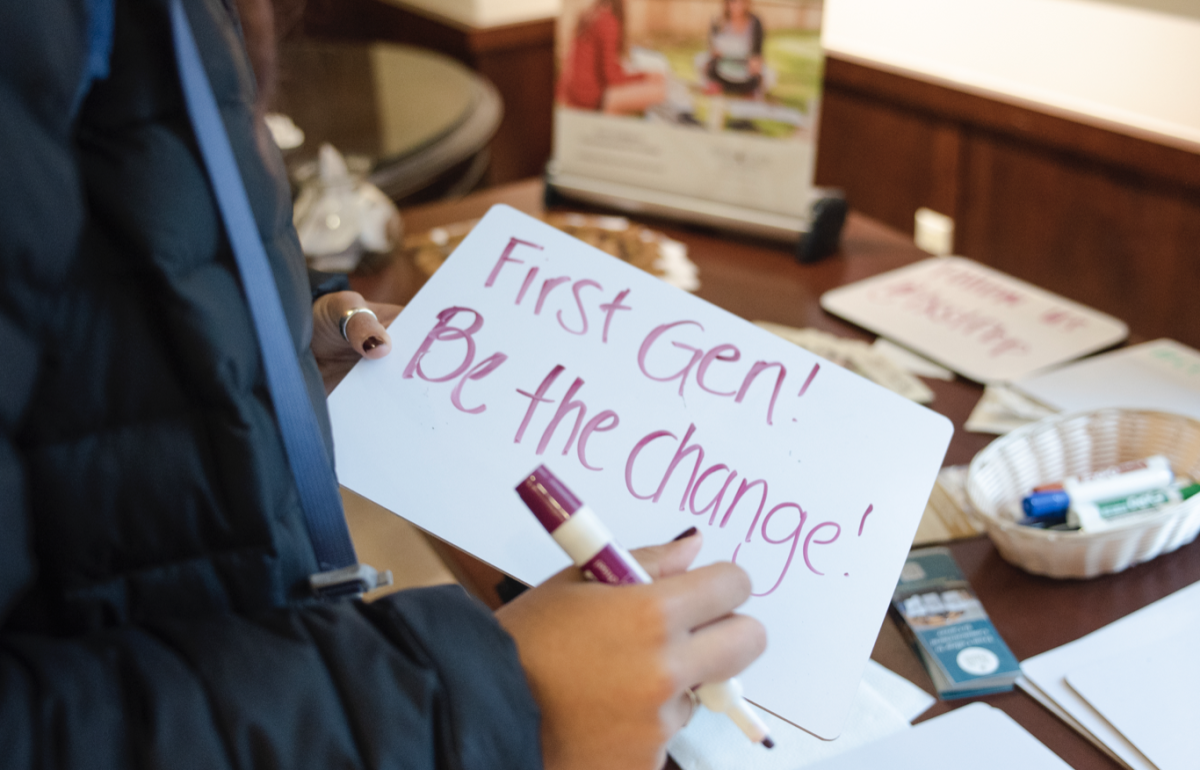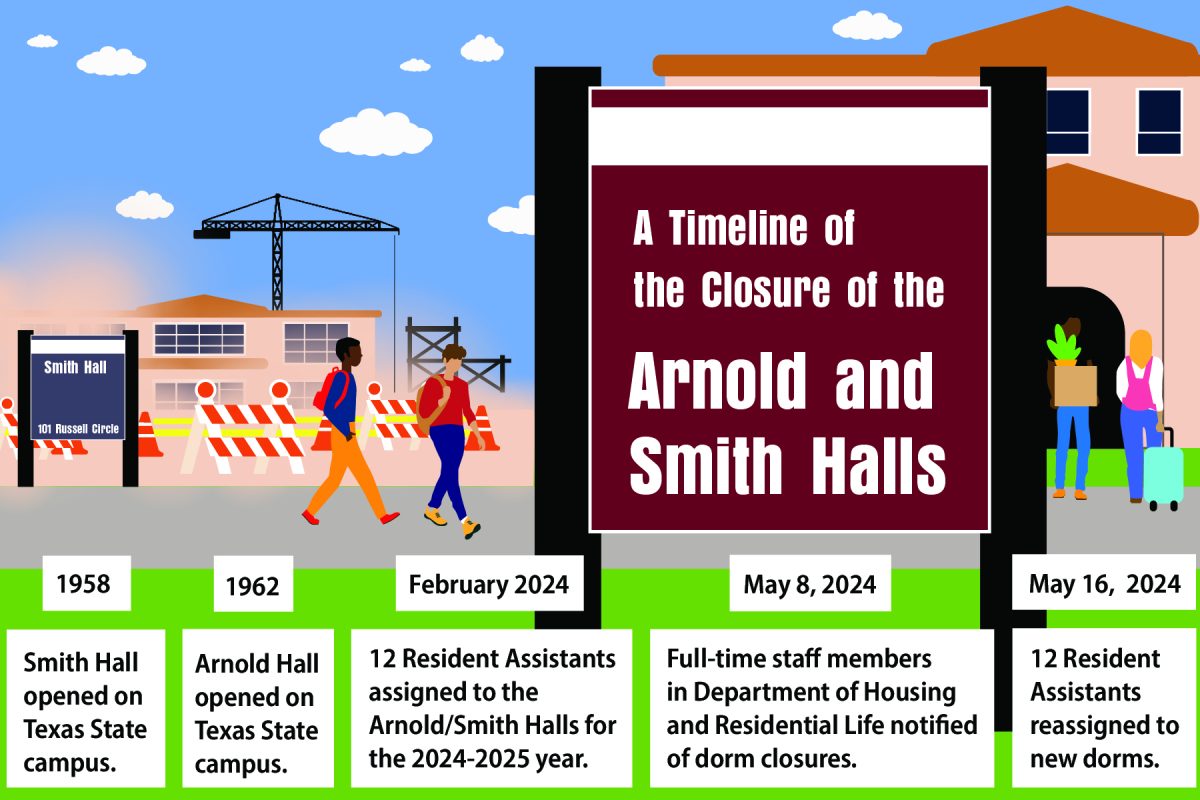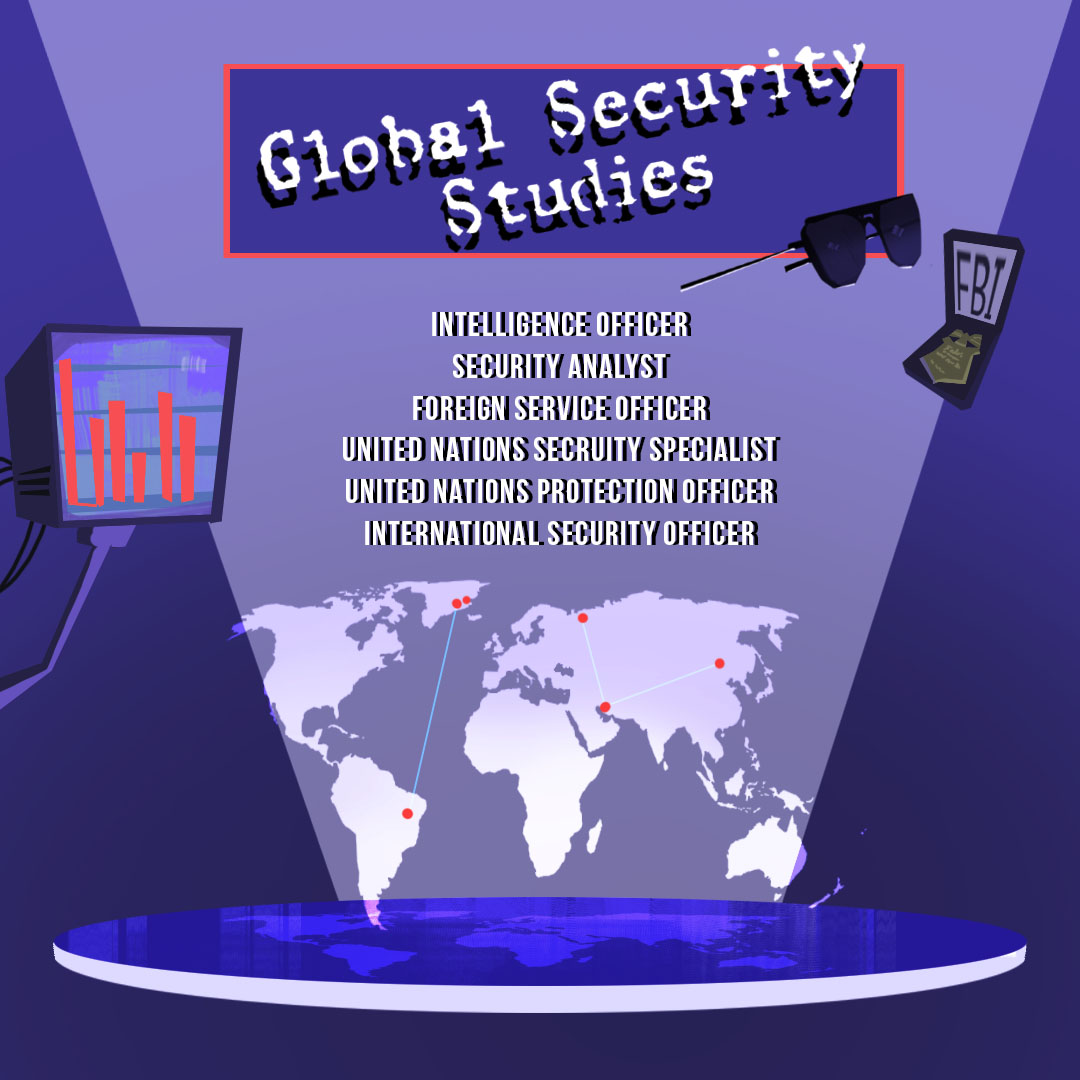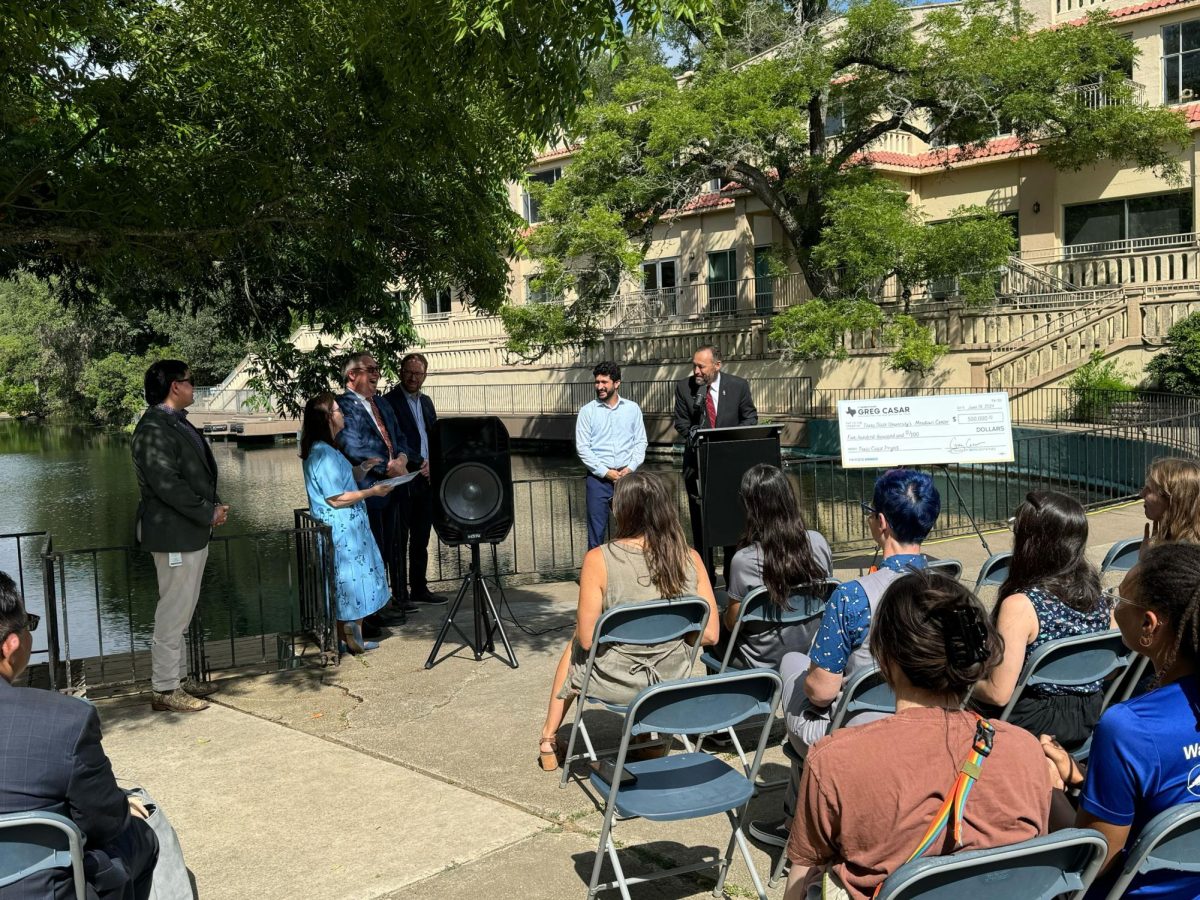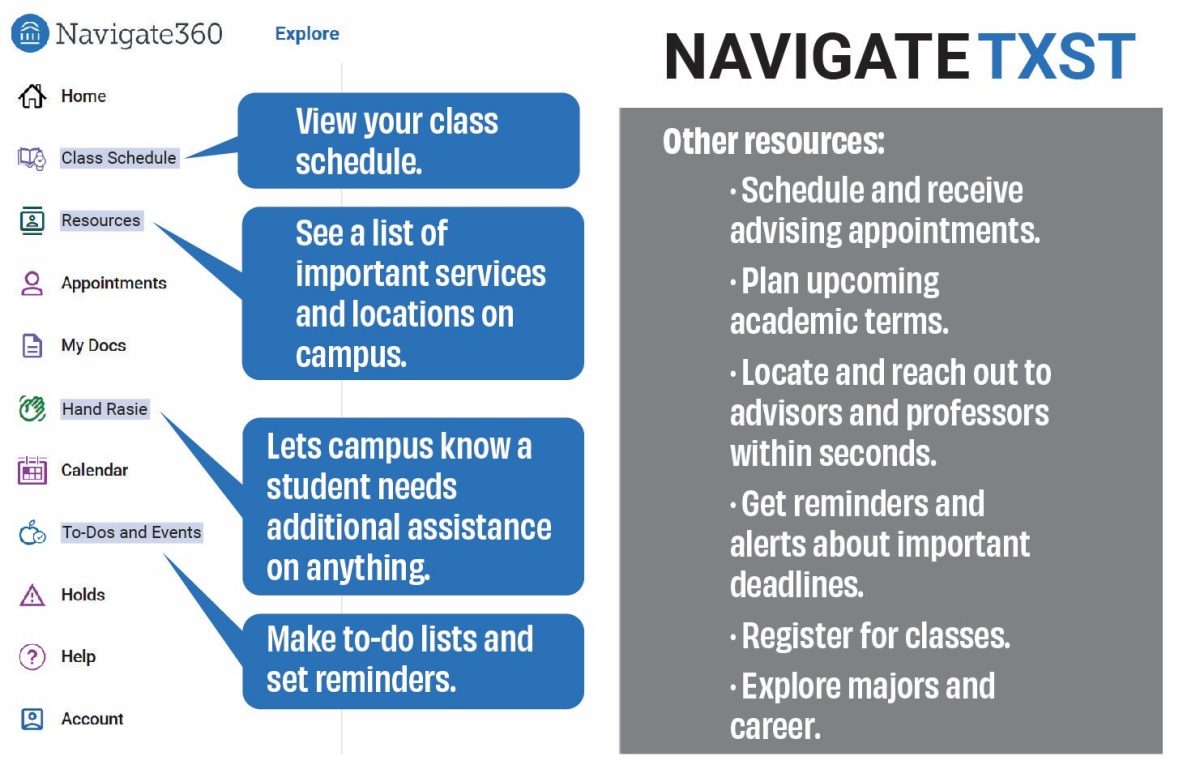Texas State celebrated First Gen Week from Nov. 7-11. The university hosted multiple events across both the San Marcos and Round Rock campuses to highlight the hard work and success of first-generation students.
One event was a faculty panel titled “What Does It Mean to be First-Gen?” in which professors shared their experiences of being first-generation college students. They discussed the obstacles unique to first-generation students such as their families’ lack of knowledge about the college experience.
“Your family doesn’t understand what your reality is. They’ve never been there,” Merritt Drewery, professor of agriculture and one of the panel speakers, said, “I think that many first-generation students have incredibly supportive families but they can’t help you and that’s really tough.”
One example of this is the process of filling out the Free Application for Federal Student Aid or FAFSA.
“Other people’s parents who have had kids go off to college were able to easily navigate FAFSA.” Brennan Ponder, a first-generation criminal justice freshman said, “I had to do the majority of my own FAFSA and just hope that it worked.”
First-generation students may also face feelings of loneliness since their families cannot relate to the student’s current experience. Independence is an important value to many first-generation students.
“A big part of being first gen is that no one else has been where you’ve been before; it’s uncharted territory,” Scott Bowman, a criminology professor and one of the faculty panel speakers said. “It’s kind of a lonely process in many ways.”
Faculty want students to know that there are resources available that first-generation students can use to feel less isolated and alone.
“First-gen students are incredibly independent; they have to be,” Drewery said. “But that independence can be a detriment when they don’t use faculty and staff and all these resources that you pay for.”
Student organizations like FLIP, for example, exist on campus for first-generation students. FLIP helps connect first-generation, low-income (FLI) students at Texas State with resources, community service, social activities, mentorship and networking opportunities.
Texas State also offers scholarships through the Bobcat Online Scholarship System (BOSS) for first-generation students who need financial support.
“Money-wise, it’s definitely been a struggle,” Ydalia Mendoza, a first-generation nursing freshman said. “[My parents] don’t have any sort of degrees so them trying to pay for college has been a really big struggle.”
Another aspect of the first-generation college experience that families may not understand is the changing of majors and career paths. In college, it is common for students to change their majors and career goals. In fact, according to a 2020 study by The University of Tulsa, about 80% of all students change their majors at least once. But, as families do not have the experience of college, they may not fully understand why students change their majors.
Faculty can offer advice to first-generation students and be the mentors they may need. Advisors can also help by providing guidance on things like class schedule organization and courses that will benefit their degree plan or help them through the first-generation college experience.
University seminar or US 1100 is a required class for incoming, first-year students that can help first-generation students transition into college.
“My US 1100 class is a first-gen student class,” Ponder said. “I’m able to connect with a lot of [first-gen students] there and the teacher is also first-gen. He’s a lot of help with everything.”
“We need to use faculty more; they are your number one resource as a student,” Drewery said. “[Students] pay our salaries, you are not here to perform for us. Meet your faculty, come to office hours, talk to them, and they will become your mentor and help you.”
Faculty members and students want current and future first-generation college students to know that being first-generation is something to be proud of. There is a place for everyone at Texas State, Drewery said and being a first-generation college student is something to embrace.
“[First-generation students] need to know they belong,” Drewery said. “When you feel you don’t belong, you stop coming and you don’t perform as well as you could.”
First-generation faculty share experiences during First Gen Week
December 11, 2022
A student writes “First Gen! Be the Change!” on a small white board during a previous First-Gen Week event.
Donate to The University Star
Your donation will support the student journalists of Texas State University. Your contribution will allow us to purchase equipment and cover our annual website hosting costs.











